Show full transcript
Antioxi Talks: From Self-Doubt to Self-Belief – Gavin’s Journey to Confidence. Ep (9) Transcripts: (00:00) Where do you think this confidence, this lack of confidence stems from? Never feeling good enough, self-doubt. That voice is in everyone's head. And you become who you surround yourself with. Do you still feel like people judge you? You know, everyone judges from the outside, right? It's not just a flick of a switch, oh I'm confident now. (00:17) The process is an ending. What are you allowing yourself to tell yourself? You also need a man to learn from. You never think about the role you play in someone else's life. Laugh short. Stop chasing things. Imagine living life like you're holding a remote. You're in control but you've never pressed play. (00:41) Now confidence is like having control but finally pressing play. Today we're speaking about what it's like to have confidence, to live with it, live without it, and really how to get it. And that's why we have Gavin. Gavin has made his life's mission to help people develop confidence because he's had the most profound change in his life, his circumstances, his career, and his relationships through developing confidence. (01:06) And we're hoping that by you listening in, we can instil some of these principles and some key takeaways that might help you. So Gavin, where were we? Tell me about what life was like with you in the very beginning. (01:30) I mean, let's talk about this journey of confidence i kind of want to define it first because confidence is weird the way it's sort of elusive it's it's super connected to yourself at the same time it's difficult to quantify yet you feel like you can able you could pinpoint people in the lineup and be like that guy looks very confident so it's a weird one right how do you how do you see Well, I saw it just like that. You know, I would always look at others and say, well, that guy looks confident, well, they're cool. (01:50) But how do you know? They might not be confident inside. So it kind of started with maybe the physical features of someone, and that was specifically for me. So I always looked for, I was never self-confident or happy within myself. When I was in relationships, I kind of looked at for someone to complete me. (02:22) And after I had a relationship that ended in 2021, I kind of took a step back and said to myself, you know what, I'm not happier than myself. How do I get to being self-confident? I the funny part is this yeah with confidence you mentioned that it started with appearance and i get that because you you you're in school where maybe where it starts or you're in the workplace the people that seem to be the loudest maybe even obnoxious those guys seem to resonate this confidence and you're just a sign that this person feels he must be very self-assured. (02:46) But that's not always true. I mean, the archetype of the bully who's super loud, seemingly confident, you start to learn in every movie there's a whole other story to this guy. And he's actually very insecure. The question is for you, your approach initially was the looks. Was the looks. And that's what's, you know, started my self-journey. (03:10) You know, I wasn't happy with my looks. So I wasn't happy with my hairline. So I did a hair transplant. Wasn't happy with my kind of my attire of clothes. So I kind of went through a whole new wardrobe change, you know. And that starts on the physical features kind of make through a whole new wardrobe change you know and that starts on the physical features kind of make me more confident okay but confidence actually you know once you go through the physical appearance it actually is within yeah but I guess the part for me is how (03:38) did you when you when you looked at yourself and you're like, I need to change how I look. How did you model what needs to be changed? Cause I mean, that's a complicated question in itself. Who did you look at or how did you even go about the process of knowing what to change? So your friends will always kind of give you the honest answer. (04:00) And the people within your circle always help you. So it started with that process, but also your tech viewpoints from others, but you need to focus on your own. So for me, it was always looking in the mirror. You know what? I actually need a change. So go to the shopping mall, try on a whole bunch of new clothes, and actually wear them and get other people's opinions. (04:23) And that's how it starts. Where do you think this confidence this lack of confidence stems from where's what's the roots of it for you i think it could have could have been school days of never having the feeling of never being good enough um and i think we all we all struggle with that you know what is our purpose you know you might compare yourself to someone else but i think you don't need to. (04:45) And who would you say made you feel like you weren't good enough? Police. Okay. That's interesting. Yeah. So would you say a lot of that does stem from your environment at that time? It does. Okay. It seems like you had a good network of people that were kind of supporting you through the transition things did you open up to them about the fact that you know what this is an issue for you and you're trying to work on it or was it there was no how did that come about so there was never me actually vocalizing it to others it was kind of just me doing it you know quietly but only to (05:28) a point would i tell them and not everyone and it was mainly also family um you know how do i get what is the next step for me so what were those inner feelings well i've never feeling good enough self-doubt um Why am I doing this? How did that manifest in your life? Because, I mean, it's one thing to feel self-doubt and feel like this lack of confidence. (05:51) But how would you say that actually manifested? So I think the manifestation kind of starts when you're keeping everything in. And I think it's just important to always vocalize it, communicate it to others how you actually feel. Because I think also through my self- my journey of not in self-confidence but feeling good enough to be an actual man, you've got to be vulnerable. And I think most of us men struggle with that vulnerability. (06:23) And I obviously know this and I kind of want to touch on it now. You didn't grow up with a father figure. No. What role do you think that played in your lack of confidence? I think the fear of the unknown or not having someone to look up to. But my mother, she was my mother and father. She taught me to be the old school romantic and always be the man that I was meant to be. (06:49) But you also need a man to learn from. And I didn't have that. Yes, you have uncles and you have other father figures where they'd be mentors, but they're still not your dad. It's very difficult. It's different. It's very difficult. I can obviously really empathize with your mom playing doing her best to play both roles but i guess the funny thing is i learned this now with with my daughter when i was reading the book a neuroscientist was speaking about the development how children develop and you can tell kids anything you want (07:21) but fundamentally they imitate that's how they learn learn. So even if you have a parent that tries to play both roles and do that for you, you lack the father figure to imitate. Because no person can be both. You can do your best, but that could possibly be... And that also explains to me why your initial response was to focus on the physical. (07:46) There's an interesting story that I read that kind of emphasizes to me what it's like living without confidence. It's a story that I'll label it the elephant in the rope, for lack of a better term. Really, it's about there's this guy walking past a circus, and he saw a whole bunch of elephants being held down by just a very thin rope tied around their legs. (08:13) Now, he looked at it and thought, man, this is really odd. Surely this elephant at any point in time could just walk away. And he was so struck back by it that he went over to one of the guys working at the circus and he said, look, how is it possible that this little thin rope is holding back this elephant? And the guy said, well, it's actually really easy. (08:31) When they were born, we tied the same thin rope to their leg and they just never knew that they could leave. And that has held them back ever since. And I think about that a lot of what it might be like to live without self-confidence. It's a limiting belief factor to hold you back. And I really want to talk about the fact that you came in here and you said, Marco, I almost called you to cancel, but I didn't because this was a part of my journey to overcome my own, well, to overcome something that's uncomfortable for me just take (09:06) us back to that moment for a second because i feel like that is it's so much in this in this in this ballpark of what it's what it's like to have this limiting belief or the lack of confidence and you overcoming it i think it's phenomenal so kudos to that for like talk to me about that process what that was like you know you never you might go through the steps of you know what i am self-confident but it's a constant journey you're never actually there but it's a constant improvement that you need to do and today was one of those steps you (09:34) know i was hesitant as you said i wanted to give you a call and just say you know marco i'm like i'm too nervous for this but this is another step in the self journey to make me confident in another step I might have ticked the boxes and everything else but there's still a whole list I need to go through and this is one of them so thank you for the opportunity no I think it's so cool you never think about the role you play in someone else's life you do this podcast. (10:07) I've done it now a few times. Obviously, I get nervous, but it's not the nervous or the conversations. It's more like, can I do the story justice? But then when you hear someone, like the story you told me now, how you felt about it, it makes me, well, for one, very conscious going forward how I think about people that I invite and try to make them feel more comfortable but it's it's just it's a really cool that I can play a role in the development I just unknowingly I guess if you didn't say to me I would have been an annoying (10:35) participant in development but I think this is really cool you mentioned it vulnerability right yeah um and I think as I said to earlier, the greatest things happen in the unknown. Would you say having been that vulnerable a moment ago helped you deal with the uncertainty? Yep. Because then others get to know you. (10:56) I think it's a really great principle, you know, that in... So now, this is not as deep as what we just said but I think about when you make a mistake in an interview or I make a mistake on the podcast when you actually bring awareness to the mistake and turn it into something else it not a mistake anymore it's part of the act even if you're on theater it's like one of the rules keeps keep going I think about you doing that it has it has a very similar appeal to me where if I speak about it, suddenly the feeling goes away. It's obviously the difficulty is in the act, it's that muscle (11:32) of building, being vulnerable. But how did you go about actually learning to be more vulnerable? I think it started with asking people and just not being afraid. And I know that's easier said than done. But everyone's, at the end of the day, is always going to have a viewpoint. But it's your own viewpoint that you should actually take to heart. (12:00) But just always openly speak and not be afraid. Who was the first person you opened up to about it? It's a tough one. Probably my mom. but just always openly speak and not be afraid. Who was the first person you opened up to about it? It's a tough one. Probably my mom. She's always my go-to. Now I might get emotional right now, but she's my go-to person. (12:18) How did she take it? How did she take it? I talked about that conversation. What was that like? It's difficult because your mom's always going to worry, so there's always more to it. But she also understands, and you'll always start with your family, and then you'll start with, you know, friends. Take me back to the moment where you had this conversation for the first time, because I think it's quite significant. (12:39) It's the first time you bring it up to anyone, something you admit. It's deeply personal. Do you remember what you said? Do you remember how you bring it up to anyone something you admit it's deeply personal do you remember what you said do you remember how you said it i think for my mom it was you know when mom i have a lot of self-doubt with myself um i've gone through this process obviously she's starting to see a change like went for hair transplant um you know i started to change my clothes but then it's actually (13:06) talking to her about it and just saying you know what i've done this kind of make myself not doubtful but more appreciative of me and i don't need anyone else's opinion to make me feel better i need my own so you know she obviously took a step back and it's weird because they also start questioning themselves. (13:26) You know, we all have this inner voice. We're not good enough. But you know what you are. And we all are. You just got to see it and feel it. That is so true. That voice is in everyone's head. And there's a story that I read about a whole bunch of frogs trying to climb a tower. And it was each one tries and they climb up and as they're climbing up, you know, they start to fall and eventually some of them quit. (13:55) They can't do it. Some of them get halfway, they quit. The other ones at the bottom are looking up and they're shouting, you know, words of negativity that it's not doable, it's not possible. And eventually, towards the end of the day, one frog finally makes the top of the tower because that was the goal all along, in case I didn't mention it. (14:14) And as the frog makes it back down to all the other frogs, they ask him, how did you do it? How did you make it to the top? And then they found out, no, it turned out that that frog was deaf and he couldn't hear all the negative voices holding him back. So sometimes it's really important that you think about your environment and who is speaking to you and what voice you are letting into your own head. (14:35) And that could also be your own voice. What are you allowing yourself to tell yourself? You've got to be careful with that inner monologue. It can really hold you back. But I think it also alludes to what other people say and if you're going to listen to them. Because if everyone else is negative and saying that they can't do it, you're not going to be able to do it. (14:52) True. So it's also important to surround yourself with otherwise people and people that have the similar values to you because you're all going to grow together. Yes. And you become who you surround yourself with did you know that if you take a fish and i think about it i don't know if it was a goldfish specifically but if you take a fish and you put it in a small bowl it can only grow as big as its environment but you put that same fish in a pond or a river it can grow many times larger which is clearly indicative that your environment has a huge impact on you (15:26) okay but i want to get into your journey there's been a lot of preambles where did it start so it obviously started you know looking for the completion from others you know and seeking that affirmation um obviously going through you know the physical changes of a hair transplant, doing Botox, going through those things, obviously leave the clothes. (15:50) But then it went into much more. Cape Town actually became a place where I kind of didn't have anxiety anymore because having doubt and not being self-confident brought on anxiety. And that feeling of not being good enough. So I kept travelling to Cape Town quite a lot. What was it about Cape Town that made you feel that way? It was things to do and not being kind of stuck indoors in Johannesburg. (16:18) Being outdoors and actually seeing the creations that God did and made for us, kind of enjoy everything that is actually out there, not get stuck into society. Because I actually always used to chase things and not experiences. And each time I'll say to myself, you know what, I'm very structured, let's actually be spontaneous and put myself out there so Cape Town actually it came about when I was sitting in bed one night and I said to myself you know what am I going to do this weekend there's nothing to do in Joburg and nothing against it but (16:57) let's just book a flight booked a flight left the next morning, ended up in Cape Town, and didn't know where I was going to stay. Rented a car, ended up in Tobach, one of the strangest places, but actually was such an important place to me, specifically at Rakes, if I may drop that name. Yeah, tell me, what is that place? So Rags is actually a wine farm in Tobach. (17:25) And the first moment I walked in there, I said to myself, you know what? I'm at peace. And I'm happier than myself. Spent a few days there. Quite defining. Quite defining. What about this winery made you feel that way? It's not specifically the winery, but it's more about the scenery and seeing the beauty of life and it's not stuff it's what you see around you experience so there's not much to do there you know it's kind of you're kind of at peace you're kind of just looking at the scenery um but it's kind of more (17:58) it was at the moment where I kind of looked more within and I was actually happy with me and it's also the time alone and not having people next to you all the time is when you become comfortable with yourself. So it's also at those moments where I started being like okay well you know what I can go to dinner on my own, I can go for coffee on my own, I don't need anyone with me. (18:26) Because at that moment, you also realize, I don't need anyone to complete me. At that stage, you know, well, the next stage, you're kind of like, well, I need someone to complement me because I'm complete within myself. That's lovely. I don't need someone to complete me. I need someone to complement me. Yeah. I like that. You know, there's this, like, when you're a kid and they're like, i always heard this so often growing up oh i'm a half and like you need to find another half and make one circle and now you you guys are like complete each other it's such a rubbish outlook on relationships and that's (18:54) not just friendships or romantic relationships like all relationships shouldn't be like that you guys should be complimenting each other you're in cape town is this the first time you've ever felt that way that was the first time and I you know I haven't moved to Cape Town yet you know I keep coming on business trips and you know just doing spontaneous trips but I always had that inner voice you know what I work remote why am I not moving to Cape Town I'm still scared you know what am I going to do (19:19) so I kind of carried on my life in Johannesburg. And then in December, I think it was 2022, I was in a car accident. I was going to boxing just before Mid-Randolph ramp, which was raining. I wasn't driving fast in the fast lane. And my car aquaplanned. Went straight into the barrier, saw my life go by. (19:46) Walked out with no injuries. My car was actually also alright. I managed to drive to the nearest police station. But during that moment, you know, it was kind of like an answer to me, you know what, life's short. Stop chasing things. You don't know if you're going to be here today or tomorrow. So enjoy every moment and cherish the people around you and that's what you decided yeah month later i moved to cape town rest is history and i can see you getting emotional and vulnerability so yeah thank you for sharing your emotions as well and i know it might be a (20:19) touching story to you we might have something similar. But never be afraid of anything. I really like that. But I mean, this to me actually sounds like the journey from going, your journey of confidence is very much still in its infancy. When did you start with the working on yourself? Like the outer words and then moving on? Like I'm trying to get a timeline as to how long this has actually taken because the challenging thing with confidence is, apart from being a daily practice, it just takes a lot of time, you know? (21:01) Because you're slowly building. It's like that Kaizen principle where it's which one percent better every day just one percent better every day because it's not just a flick of a switch oh I'm confident now no it's not how it works so I guess that's kind of what I want to talk about like how long was this entire process so I think the process is an ending yeah it's ongoing I mean we saw today you know I'm still going to have the inner voice. I'm still going to doubt myself, but that's a natural human instinct. (21:28) But you've got to go through the step of just doing it. I think the change of the physical kind of stopped from the car accident. And the inner kind of started probably at Rake's Wine Farm when I was at peace within myself. But that is still improving every day. All right. Let's talk about that for a second. (21:50) The two. Outer versus inner. Which one was a lot more defining for you? As in, if you had to put your value in one basket, if you had to go back and do this again, would you start differently? No. Okay. Because I was still never happy with my physical and it was only the physical to improve for myself and others kind of you know would look at me differently you know everyone judges from the outside right that's something as natural as human human it's human nature but when you get to know someone you kind of look at (22:25) the inside yeah do you still feel like people judge you everyone always judges everyone that's everyone's got a viewpoint and how do you take it now compared to how you used to take it when you're younger i don't take it personally anymore because i know it's it's normal and it's okay i'm happier than myself and i don't need someone to tell me something differently because I know who I am and where I'm going. (22:50) I would like to know, have you ever had an incident? So were you in your previous, I'm going to call this previous version of Gavin. He didn't have that confidence to do something and now years have gone by, you've been working on yourself and you're feeling a lot better and you're now re-attempting things you may have never done before what is something that has you've done now with this newfound confidence that has had a huge impact on your life so I think one could be you know I started I left a job funny enough those were all my mentors you know my day-to-day life um I left (23:27) them after five years and I started another job you know I was comfortable but I was also scared and I just thought okay well you know what let me actually put myself out there and try something new within the same industry but you know I don't want to be comfort as a killer yeah i think what's interesting to me and this is actually something i i want to draw attention to in this conversation i find this so interesting is like a huge hurdle for you was the act of quitting and leaving a job and starting a new one um in a new in a new place in a new place, in a new environment. It was so out of bounds for who you are as a character. (24:07) Yet, you might have people listening and be like, oh, I've quit a job. That doesn't sound like it. But sometimes you misunderstand what a hurdle might be, what a mountain might look like for another individual. And it's so evident when I speak to you that perspective and context and understanding is incredibly important and that's why i love how you you living authentically it's it's providing me with so much clarity that i unknowingly and unconsciously you just judge a book by its cover you know what i mean (24:36) um and it's actually been incredibly insightful for me i want i want to get into that because what this is is wisdom you're imparting wisdom into me yeah and then i guess the question is with with wisdom like what is it that you're looking to impart so at the end of the day i you know wisdom came about of having a near death life death experience um and now as i said earlier i always wanted to accumulate things to pass on to someone else but that doesn't live on forever, right? You know, from that experience, (25:08) I realized it's actually knowledge. And everyone might have a different definition of wisdom, but wisdom is knowledge. So at the end of the day, your parents or your friends might have taught you something and you've passed that on to your daughter or another friend and that lives on forever. So wisdom for me will always come first. (25:31) Wisdom first at the end of the day. That's nice. What is a specific principle that you truly hold dear that you would like to pass on? Vulnerability. Specifically for men, because the actual definition of a man is someone that is vulnerable and not afraid to tell his feelings. Because women need to know our feelings. (25:58) In society, we're all taught to be the man of the household and not show our fear or emotions, because if you do it it you're not a man but a true man is someone that actually is vulnerable i love that i completely agree i think currently the one thing i can clearly see that is lacking in today's world for men specifically are good role models they are very misguided and I think vulnerability authenticity is something that is not on top of the radar and it gets really left behind and it's leaving too much space for the wrong type of men to (26:35) be role models. Gavin I really want to thank you for coming out today I genuinely appreciate it I think and I also I'm really happy that I could play a role in your development. I think it's fantastic. Something that I'm going to cherish taking it away. Do you have any final remarks you want to, maybe any shout outs? You can really, the floor is yours. (26:53) Shout outs. That's a long list. No, I think at the end of the day, everything always happens for a reason. And I think this is my closing remark. Whether it's positive or negative if it's negative there is a positive in it you just got to see it and it's not on your timing it's on God's timing and people come into your life for a reason or they stay, it's for a reason and cherish every moment for it. …(26:53) …people come into your life for a reason and cherish every moment for it.








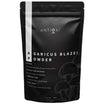
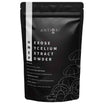

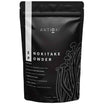
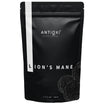



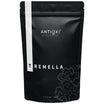
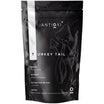



Leave a comment
All comments are moderated before being published.
This site is protected by hCaptcha and the hCaptcha Privacy Policy and Terms of Service apply.